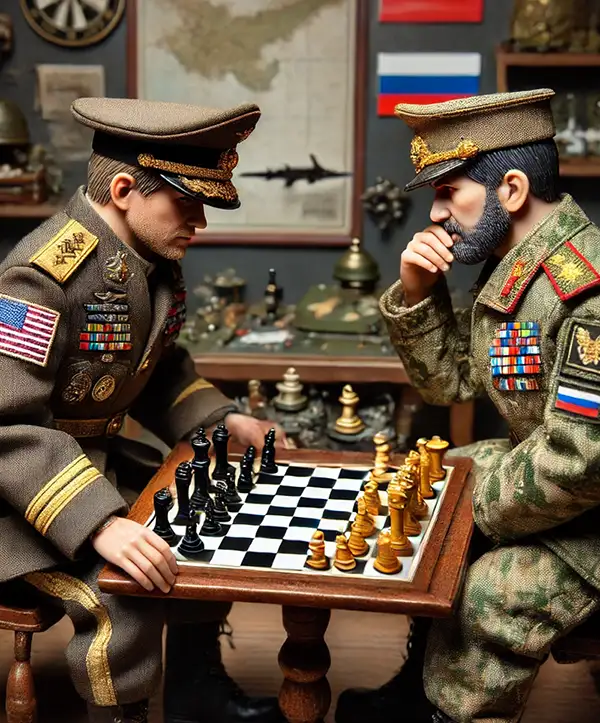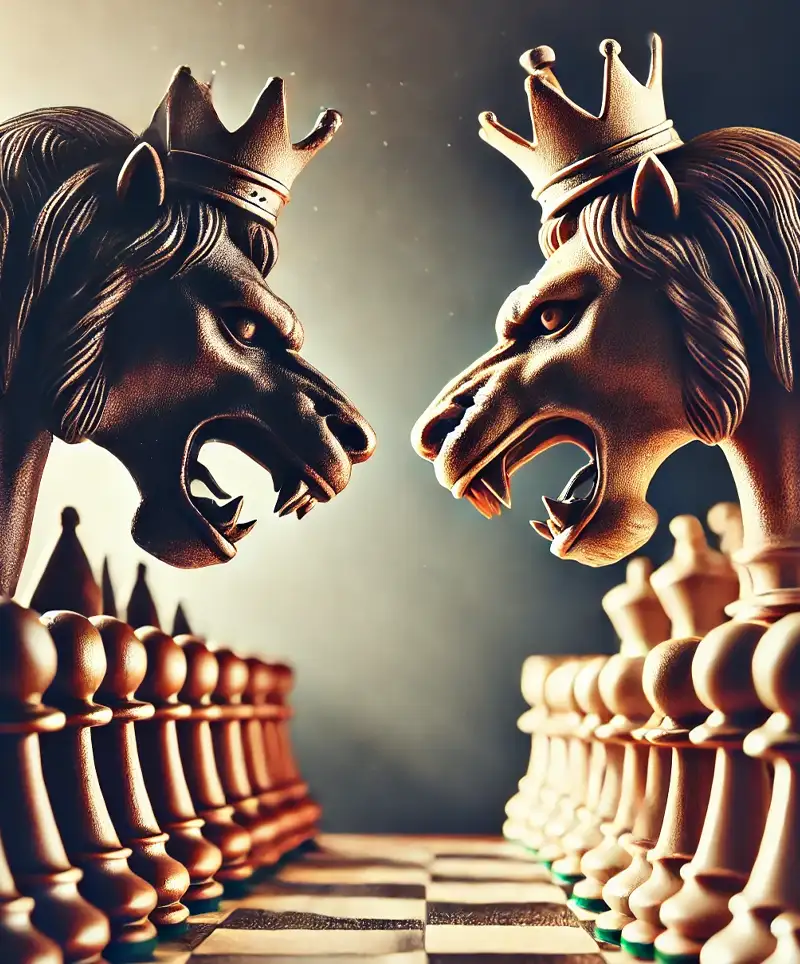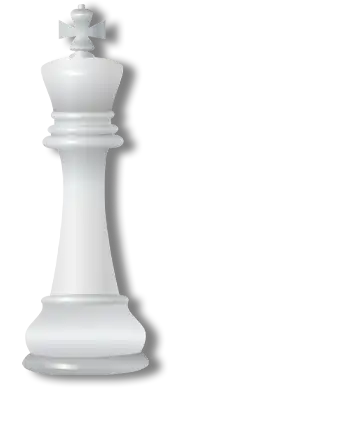Celebrating the Ultimate Battle of Wits
Every year on July 20th, chess enthusiasts around the globe gather to celebrate International Chess Day, a day dedicated to the ancient game of strategy, intellect, and patience. Whether you're a grandmaster or a novice just learning to differentiate a knight from a bishop, this day offers an opportunity to appreciate the depth and beauty of chess. Let’s delve into the history, significance, and unique quirks of this timeless game.
A Brief History of Chess
Chess is believed to have originated in northern India during the Gupta Empire, around the 6th century AD. Known then as "chaturanga," the game spread to Persia, where it became "shatranj," and eventually made its way to Europe through the Muslim world and the Byzantine Empire. By the 15th century, chess had evolved into the form we recognize today, complete with queens, bishops, and rooks moving in their familiar patterns.
The first modern chess tournament was held in London in 1851, won by German master Adolf Anderssen, who was renowned for his aggressive and creative play style. Since then, chess has become a global phenomenon, with world championships, online platforms, and a vibrant community of players spanning every corner of the globe.
Why Celebrate International Chess Day?
Chess isn’t just a game; it’s a workout for your brain, a cultural bridge, and a historical treasure all rolled into one. On International Chess Day, we celebrate more than just a board and 32 pieces. This day highlights the intellectual stimulation, cultural unity, and historical significance that chess brings to millions around the world.
First and foremost, chess is a brain booster. Playing chess regularly can enhance cognitive abilities such as problem-solving, memory, and critical thinking. It teaches players to think several steps ahead, much like planning a road trip without a GPS. Chess also demands patience and discipline, encouraging players to carefully consider their moves instead of rushing headlong into traps. It’s the mental equivalent of lifting weights, except you’re more likely to get strange looks if you do it in a gym.
Chess also acts as a bridge between cultures. It's a universal language that transcends national boundaries, allowing people from diverse backgrounds to connect and compete on equal footing. Whether you’re playing in a park in New York, a café in Paris, or online against an opponent in Tokyo, chess creates a unique bond. This global aspect of chess fosters a sense of community and mutual respect among players, promoting international camaraderie and understanding.
 The historical significance of chess cannot be overstated. Originating in northern India around the 6th century AD, the game has evolved through various cultures and civilizations, each adding its unique twist. From the Persian shatranj to the modern game we know today, chess has been a constant through centuries of change. It has been played by kings and commoners alike, serving as both a pastime and a tool for strategic thinking. Celebrating International Chess Day is a nod to this rich heritage and the many great minds who have played and studied the game.
The historical significance of chess cannot be overstated. Originating in northern India around the 6th century AD, the game has evolved through various cultures and civilizations, each adding its unique twist. From the Persian shatranj to the modern game we know today, chess has been a constant through centuries of change. It has been played by kings and commoners alike, serving as both a pastime and a tool for strategic thinking. Celebrating International Chess Day is a nod to this rich heritage and the many great minds who have played and studied the game.
Moreover, chess is a great equalizer. In a world often divided by wealth, status, and power, chess levels the playing field. It doesn’t matter if you’re playing against a millionaire or a student; on the chessboard, only your skill and strategy matter. This egalitarian aspect of chess is particularly appealing, as it allows anyone with the interest and dedication to excel, regardless of their background.
On International Chess Day, we also celebrate the quirky and amusing aspects of the game. For instance, did you know that the longest recorded chess game lasted 269 moves and ended in a draw? Or that some grandmasters can play blindfolded, relying purely on memory and visualization? These fascinating tidbits add a layer of charm to the already intriguing game, making it even more engaging for both players and spectators.
International Chess Day is not just about playing the game; it’s about appreciating the depth and beauty of chess, from its intellectual challenges to its cultural significance and historical roots. It’s a day to honor a game that has entertained, educated, and united people for centuries and will continue to do so for many more. So, whether you’re reenacting historic matches, challenging friends, or just marveling at the strategic depth of the game, take a moment to appreciate the incredible world of chess.
Fun and Quirky Chess Facts
If you think chess is all serious faces and furrowed brows, think again. The game has its share of amusing tidbits:
-
The Longest Game: The longest recorded chess game took place in 1989 between Ivan Nikolić and Goran Arsović. It lasted 269 moves and ended in a draw. Imagine sitting through that without a bathroom break!
-
A Pawn’s Journey: A pawn that reaches the opposite end of the board can be promoted to any other piece, except another king. Most players opt for a queen, but some have chosen a knight for a surprise attack, or even a rook just to confuse their opponents.
-
Blindfold Chess: Some grandmasters can play chess blindfolded, relying purely on memory and visualization. In 1960, George Koltanowski set a record by playing 56 simultaneous blindfold games. Just remembering where you left your keys seems trivial now, doesn’t it?
Celebrating International Chess Day
You don’t have to be a grandmaster to celebrate International Chess Day. Here are some ways to make the most of it:
Host a Chess Tournament: Gather your friends, family, or colleagues for a friendly chess tournament. It’s a great way to bond, test your skills, and maybe even win some bragging rights.
Learn Something New: If you're new to chess, International Chess Day is the perfect time to learn the game. There are countless online tutorials, apps, and local clubs where you can start your journey.
Play Online: Join an online chess platform like Chess.com or Lichess.org and play against opponents from around the world. You can participate in tournaments, solve puzzles, and improve your ranking.
Study the Masters: Watch classic games played by legendary grandmasters like Bobby Fischer, Garry Kasparov, and Magnus Carlsen. Analyzing their strategies can provide valuable insights and inspire your own play.
 The Future of Chess
The Future of Chess
With advancements in technology, chess has entered a new era. Artificial intelligence, such as IBM's Deep Blue and modern engines like Stockfish, have pushed the boundaries of what’s possible in chess strategy. Online platforms have democratized access to high-level competition and learning resources, making chess more accessible than ever before.
International Chess Day is more than just a date on the calendar; it’s a celebration of human ingenuity, strategic thinking, and the simple joy of a well-fought game. Whether you’re reenacting historic matches, challenging friends, or just trying to figure out why the knight moves in such a peculiar way, take a moment to appreciate the game that has fascinated minds for centuries. Happy International Chess Day!
Please Share our Content






 The historical significance of chess cannot be overstated. Originating in northern India around the 6th century AD, the game has evolved through various cultures and civilizations, each adding its unique twist. From the Persian shatranj to the modern game we know today, chess has been a constant through centuries of change. It has been played by kings and commoners alike, serving as both a pastime and a tool for strategic thinking. Celebrating International Chess Day is a nod to this rich heritage and the many great minds who have played and studied the game.
The historical significance of chess cannot be overstated. Originating in northern India around the 6th century AD, the game has evolved through various cultures and civilizations, each adding its unique twist. From the Persian shatranj to the modern game we know today, chess has been a constant through centuries of change. It has been played by kings and commoners alike, serving as both a pastime and a tool for strategic thinking. Celebrating International Chess Day is a nod to this rich heritage and the many great minds who have played and studied the game. The Future of Chess
The Future of Chess








 "Sláinte!" is a traditional Irish expression used as a toast, equivalent to "Cheers!" in English.
"Sláinte!" is a traditional Irish expression used as a toast, equivalent to "Cheers!" in English.